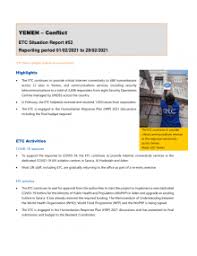US move to designate Houthis terrorist organization will help Yemen peace efforts: Officials, analysts


America’s decision to designate the Iran-backed Houthis as a foreign terrorist organization will help pave the way for peace in Yemen, government officials and analysts claim.
The designation, due to come into effect the day before US President Donald Trump’s administration leaves office, would curb Houthi human rights abuses and the group’s resistance to peace efforts, while weakening financial sources that fuel the war in the country, they said.
But critics have argued that the move might exacerbate the humanitarian crisis, escalate violence, and encourage the Houthis to strengthen ties with Iran.
Yemen’s parliament has urged American legislators to approve the designation to punish the Houthis for crimes carried out against Yemenis. It believes the move would force the Houthis into accepting unfulfilled peace agreements and current peace efforts, the official news agency SABA said.
“The Houthi militia has destroyed the land and people of Yemen and posed a threat to international peace and security,” the parliament said in a statement.
Ahmed Obeid bin Daghr, former prime minister of Yemen and a senior adviser to the Yemeni president, described the US move as an “accurate and realistic description” of the Houthi movement, adding that the step would boost the Yemeni government and Arab coalition efforts to recapture state bodies from the Houthis.
In a tweet, Daghr said: “With this historic decision, the Americans have expressed their desire to achieve peace, sovereignty, and unity in Yemen and to save Yemen from Iranian interference.”
Despite strong opposition from aid workers and many Yemen experts, the internationally recognized government of Yemen has stepped up diplomatic efforts to get the Houthi movement declared a terrorist organization following last month’s missile attack on Aden airport that killed and wounded more than 130 people.
The Yemeni government has said that Houthi crimes and human rights abuses are on a par with those committed by other terrorist organizations such as Daesh and Al-Qaeda.
However, critics have pointed out that the US move may aggravate the world’s worst humanitarian crisis in Yemen by restricting movements of international aid organizations that distribute vital humanitarian assistance to millions of hungry Yemenis and could also provoke the Houthis into escalating their military operations throughout Yemen.
Ahmed Awad bin Mubarak, Yemen’s foreign minister, told Arab News that the decision would not have any impact on humanitarian deliveries inside Houthi-controlled areas, as it excluded humanitarian workers who deal with the rebels from sanctions.
“We will not allow the punishment of our people in areas under the control of the militias. The decision includes exceptions that will enable humanitarian organizations to operate,” the minister said.
At the same time, Yemeni government officials who handle humanitarian activities inside Yemen backed the US move, blaming the Houthis for fueling the humanitarian crisis by blocking the distribution of life-saving aid in areas under their control.
Based on his previous experience with the Houthis, former Yemeni minister of local administration and chairman of the higher committee for relief in Yemen, Abdul Raqeeb Fateh, said the designation would have positive impacts on the delivery of humanitarian assistance since it would put an end to the plundering of aid by the Houthis.
“Since 2014, the Houthis have looted relief aid and used it to support their war efforts and refused to apply humanitarian standards. The decision will force them to back down and reduce plundering,” he added in a tweet.
Abdu Abdullah Majili, a Yemeni army spokesman, told Arab News that troops were ready to confront any military action by the Houthis in response to the US announcement. “The national army is prepared to inflict defeat on the militia. The Houthis have committed heinous crimes against Yemenis since Sept. 21, 2014.”
Yemeni military and political experts noted that aggressive actions by the Houthis would only consolidate grounds for the designation and would push more countries into backing the decision.
“The Houthis have no other option but to comply with peace efforts. They are responsible for ruining the biggest political process in Yemen brokered by the world,” Najeeb Ghallab, undersecretary at Yemen’s Information Ministry and a political analyst, told Arab News, referring to the Houthi coup.
Nadwa Dawsari, a Yemeni conflict analyst, claimed that only a military operation would put an end to the Houthi threat and push the group into accepting peace initiatives.
In a tweet, she said: “Neither political negotiations with Houthis nor their designation alone will contain their (and Iran’s threat). Only a strong and well-planned ground military action that weakens them will neutralize their threat and bring Yemen closer to peace.”
News of the US designation negatively impacted exchange markets in the country, causing the Yemeni currency to fall again. Local moneychangers told Arab News that the Yemeni riyal was traded at 780 against the dollar on Tuesday, falling from 715 on Sunday. The riyal regained 20 percent of its value last month when a new government was formed and returned to Aden under the Riyadh Agreement.

Aden — Yemen Airways has announced new updates to its ticket cancellation (VOID) policy, introducing financial penalties on travel agents in…

Geneva – The United States announced that Yemen will not be among the countries benefiting from a new $2 billion funding pledge for United Na…

Paris — The French humanitarian organization Acted announced that it has delivered cash assistance to nearly 89,000 people affected by displa…